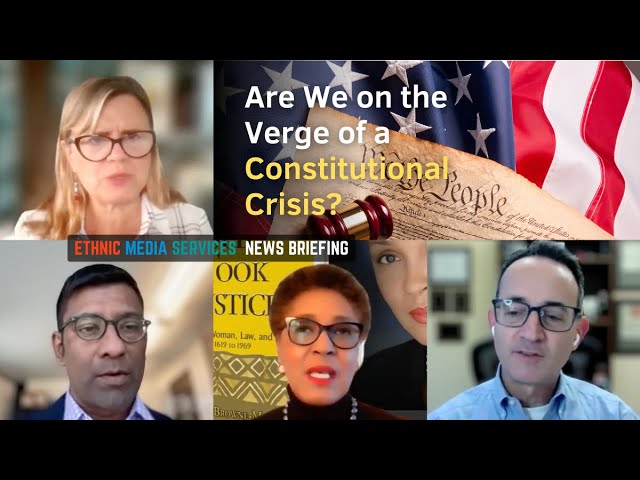Vidya Sethuraman
India Post News Service
Ethnic Media Services (EMS) held a seminar on “The Decline of American Democracy” on November 10 to conduct an in-depth discussion on the possible constitutional crisis. The meeting focused on the definition of a constitutional crisis and analyzed it from the perspective of historical precedents and the current political atmosphere.
Seth Masket, a professor of political science at the University of Denver, introduced four scenarios that may lead to a constitutional crisis: unclear constitutional directives, infeasibility of political action, institutional failure, and lack of political will.
First, the Constitution does not provide clear instructions on how to respond to crises that may arise in certain situations, such as succession issues when U.S. presidents died in the past. He then discussed the crises that arise when the provisions of the Constitution itself are unclear, such as the 19th-century question of whether the federal government could limit or abolish slavery in the states.
The third type of crisis is institutional failure, such as a government shutdown. Finally, he addressed situations where things are clearly required to be done by the Constitution but are not politically feasible, such as the difficulty of impeachment proceedings, which may be the most relevant type of crisis at the moment.
Gloria J. Browne-Marshall, professor of constitutional law at John Jay College, City University of New York (CUNY), warned that the United States may be heading towards a constitutional crisis caused by a refusal to follow judicial orders. The 2024 presidential election poses a potential threat. This threat is not limited to theoretical discussions, but there are already signs of it emerging in the current political environment.







